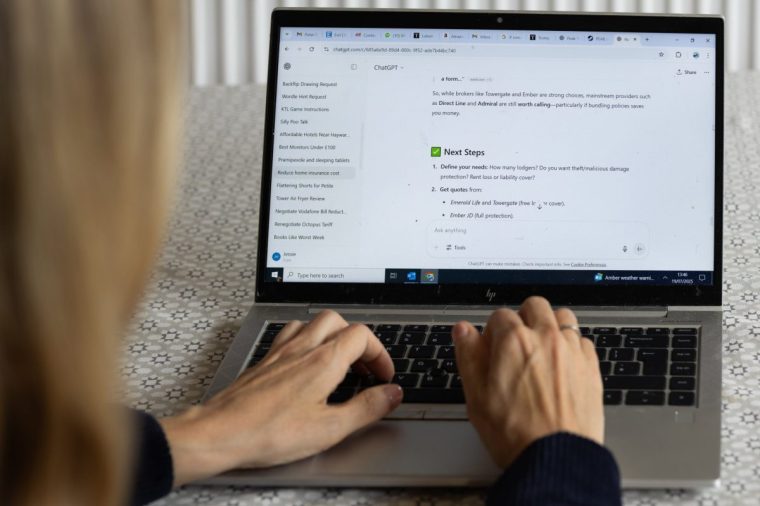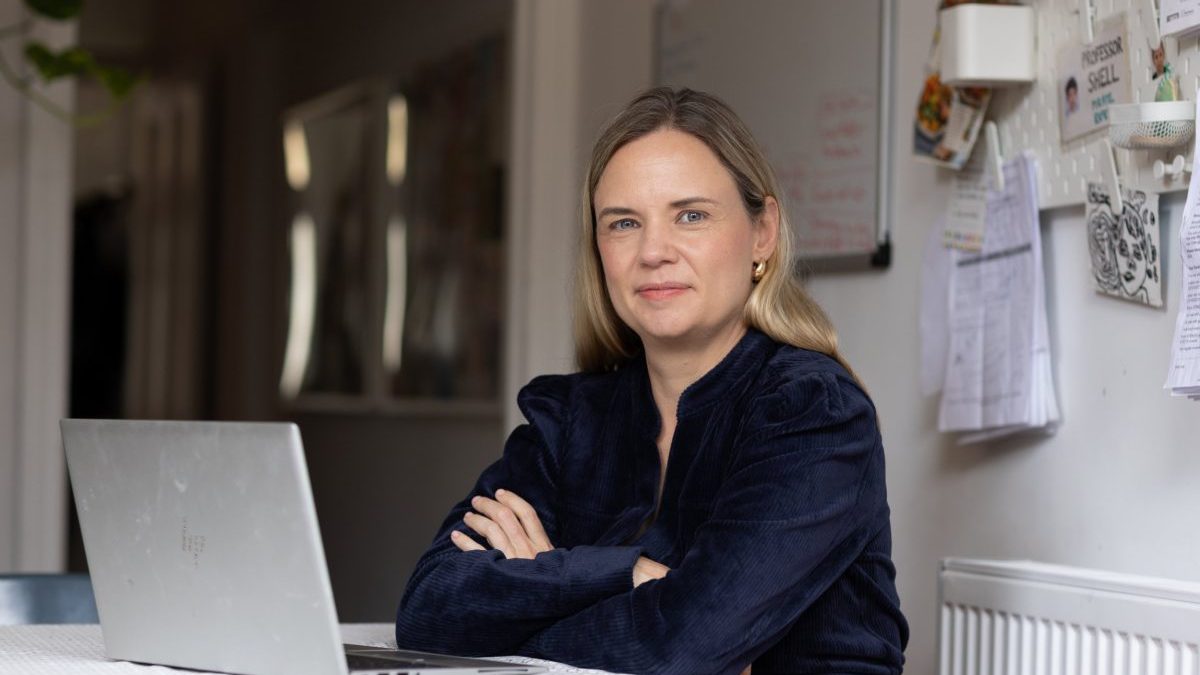It took minutes to negotiate lower energy and broadband bills – the possibilities are endless
Historically, there have been two ways to save money: be self-disciplined and/or be good at long-term thinking.
But now there is a third route: use Chat GPT.
I have written about personal finance for 15 years and when my editor suggested I use the string of code to see how much money I could save, I was skeptical.
But I’m now on track to be £782 richer a year, and all thanks to the bot.
So how did I save this much?
Well, I started the process, naturally, by asking Chat GPT what to do. It suggested that it provide me with a script to try to negotiate money off my utility bills.
So this is what I did, starting with broadband. I told Chat GPT that I had been with Vodafone for three years and didn’t love it, as I personally found my Wi-Fi was quite patchy for the £35 a month I was paying.
It instructed me to look at what other deals were out there (two minutes on uSwitch’s website and I could see Virgin was offering the cheapest home broadband in my area for £23 a month). I reported back and asked for a script, which was concise and persuasive. I was a loyal customer who had seen this better deal, it told me to say: could Vodafone better it?
Because chatting about broadband speeds is slightly less appealing than root canal work, I asked Chat GPT if I could email rather than call. I could, it said grudgingly (or perhaps I imagined that), but it can be most effective to resolve things by phone, not to mention quicker. “Let’s do this the old-fashioned way,” I said to myself as I dialed the number.
 ChatGPT offered negotiation scripts for providers (Photo: Teri Pengilley)
ChatGPT offered negotiation scripts for providers (Photo: Teri Pengilley)
I read the script word-for-word and the woman from Vodafone immediately folded, offering me a reduction on our bill of £22 a month including VAT. Result!
This saved me £156 a year. Buoyed by my quick win, it motivated me to tackle the big one: energy. I explained to Chat GPT that we liked our provider (Octopus) and wanted to stick with them.
I emailed Octopus using the script the bot suggested. “As prices and market conditions have been shifting, I want to ensure I’m still on the most cost-effective plan,” I typed, requesting a review of my tariff.
This set off an email exchange as confusing as an AI-umpired tennis match. After six times going back and forth I was no closer to getting the point, and was forced to pick up the phone after all (yes, Chat GPT, I know). I then pretended to listen for 25 minutes while the very helpful operator at Octopus went through all the different options. As our usage is high (two kids and a lodger, and my fondness for deep, hot baths) she suspected a variable tariff for gas would suit us best and an agile tariff – which changes by the hour – for electricity.
Looking at our usage over the past year, she could see that had we been on the agile tariff, we would have paid £45 less for our electricity last month alone. And assuming this increase happens across the year (and acknowledging there are a lot of variables, but for the sake of simplicity let’s go with it) we could be £540 better off a year. And that’s just for electricity.
For gas, had we been on the variable tariff this past year rather than a fixed one, we would have been £86 better off. Sold. I switched our tariffs. Total likely annual saving: a whopping £626, which took less than four hours over two weeks. The energy negotiations took the longest (two or three hours).
Oh, Chat GPT, you are good. But it seems you can’t work miracles. While researching this piece I received a £90 penalty for not paying a charge to use a tunnel in south London that I have been driving through for decades but, I’m pretty sure, didn’t charge previously. Coupled with the fact that I was having a terrible day for personal reasons I won’t bore you with here.
I consulted Chat GPT, hoping it could wave a magic wand and make it go away. And it wrote me a blinder of a letter to email, stating it was my first time making this mistake and I’d be willing to pay the original charge. A week later my hopes were dashed and my faith in the bot dented, when I received a reply from Transport for London. No dice. I paid the fine.
Not all bills I managed to haggle down, however. It was time to renew my house insurance but I discovered our old policy hadn’t recorded the fact we had a lodger. So, back to Chat GPT: which insurers cover this? It recommended Emerald Life.
After a long phone conversation where I struggled to remember the make of my key lock, I was quoted £1,627.24 – a lot more than the £436 we used to pay. Now this doesn’t necessarily mean it’s not the right policy for us, of course, but I did go back to my trusty AI companion for help drafting a reply, asking if they could do a better price.
“After reviewing comparable policies and considering my current risk profile — no recent claims, a well-maintained property, and consistent insurance history — I was hoping you might offer a more competitive premium,” it suggested. Nice. I’m waiting to hear back.
In terms of my bills, I’ve covered the main ones, since my job pays my mobile phone bill (thank you, boss) and you can’t haggle down water bills. The only option is to go with a water meter and that usually saves you money only when you have fewer than three people in a house, possibly four. It’s unlikely to make a difference to five of us and a cat.
All in all, though, I’ve been genuinely surprised by how effective a way it is to save money. These are things I could have done without the help of AI, of course, but having a script definitely sped things up and gave me a structure. It also helped me be less British in asking more overtly for money off.
And the possibilities for saving money, it seems, are endless: I just used Chat GPT to book our car hire for our summer holiday in France, and got it down from £600 to £300. Merci, Chat GPT.

